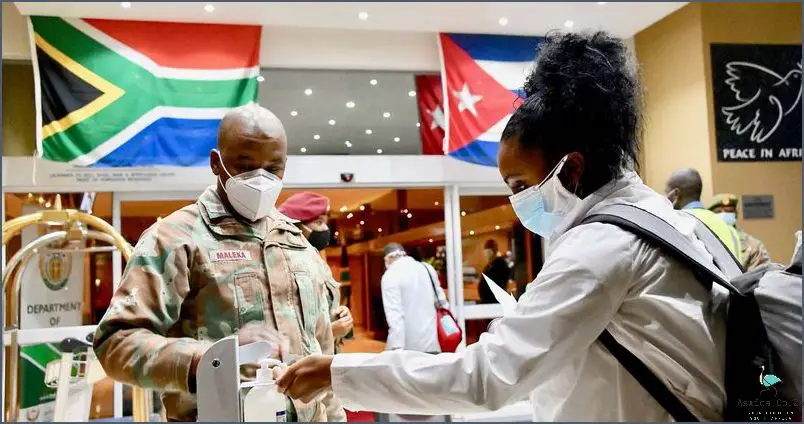
Hospital groups in South Africa are an important and integral part of the country’s healthcare system. These groups provide a wide range of medical services, including general medical care, specialist care, and emergency services. Many of these groups have affiliations with universities and research institutes, making them a key player in research and development. Hospitals in South Africa are typically run by private or public organisations, with some hospitals being run by religious organisations or charities. These hospital groups provide a variety of services that are tailored to meet the needs of the local population. For example, some of these groups offer services for the elderly, children, and those suffering from chronic illnesses. Additionally, many hospital groups provide services such as antenatal care, mental health, and specialist surgeries. By providing these services, hospital groups in South Africa are able to ensure that their patients receive adequate medical care and attention.
Contents
Hospital Groups In South Africa
Hospital Groups in South Africa are large, multi-faceted organisations that provide healthcare services to a variety of people. They typically operate several hospitals, clinics and other healthcare facilities, and employ thousands of doctors, nurses and other healthcare professionals. Hospital Groups in South Africa offer a number of services, including emergency care, primary care, inpatient care, specialty care, diagnostic services, preventative care and health promotion activities. These organisations also work with hospitals and other healthcare providers to coordinate patient care, as well as to provide education and training to healthcare workers. Additionally, many Hospital Groups in South Africa are actively involved in healthcare research, development and advocacy. In this way, they help to improve access to quality healthcare and to reduce health disparities across South Africa.
Advantages of hospital groups in South Africa
South Africa has a burgeoning healthcare industry that is not only providing quality healthcare services to its citizens, but also creating opportunities for the growth of hospital groups. Hospital groups, or health systems, are networks of healthcare organizations that are connected and working together to provide comprehensive health care services. These groups offer a variety of benefits that make them an attractive option for healthcare providers in South Africa.
The first advantage of hospital groups in South Africa is the economies of scale they provide. By combining resources, hospital groups can reduce costs, increase efficiency, and improve access to services. Hospital groups also give healthcare organizations more bargaining power when negotiating contracts with health insurers, allowing them to get better rates and more favorable terms. Additionally, by collaborating with other healthcare organizations, hospital groups can access a wider range of services, such as specialized medical equipment, technology, and personnel.
Another advantage of hospital groups in South Africa is the ability to share resources and expertise. By joining a hospital group, healthcare organizations can share their knowledge and experience, enabling them to provide better care for their patients. Additionally, hospital groups can provide more comprehensive services, such as integrated care services, which are more difficult for individual health organizations to provide. In addition, hospital groups can help healthcare organizations provide more efficient and cost-effective services, as well as better quality of care.

Finally, hospital groups in South Africa can help to improve patient outcomes. By working together to provide comprehensive care, hospital groups can better identify health issues and develop strategies to address them. Additionally, by sharing resources, they can help to reduce the burden on individual healthcare organizations and reduce wait times. This can lead to better patient satisfaction and improved health outcomes.
In conclusion, hospital groups in South Africa offer a variety of benefits that can help healthcare providers provide better care for their patients. By combining resources, gaining bargaining power, and sharing expertise, hospital groups can help to improve access to services, reduce costs, and improve patient outcomes.
Challenges faced by hospital groups in South Africa
Hospital groups in South Africa are facing a plethora of challenges, ranging from resource management to access to healthcare. With a population of more than 57 million people, South Africa boasts the largest healthcare system in Africa. However, the country is still struggling to provide adequate coverage to its citizens. Challenges faced by hospital groups in South Africa include a lack of resources, inadequate access to healthcare, and inadequate infrastructure.
One of the most pressing challenges for hospital groups in South Africa is the lack of resources. Healthcare providers must work with limited budgets and limited staff to serve a large population. In addition, hospitals often lack the necessary equipment and supplies to adequately serve their patients. This can lead to delays or even the denial of care for those who need it most.
Another challenge faced by hospital groups in South Africa is inadequate access to healthcare. Many South Africans lack health insurance or the means to pay for private healthcare services. As a result, they are often unable to access the care they need. In addition, some parts of the country have limited access to medical specialists, which can make it difficult for patients to receive the care they need.
Finally, hospital groups in South Africa face inadequate infrastructure. Many of the country’s hospitals and clinics are outdated and have limited resources. This can prevent them from providing the most effective care to their patients. In addition, many healthcare facilities are located in rural areas, making it difficult for patients to access them.
Hospital groups in South Africa face a number of challenges, but there are some initiatives in place to address these issues. For example, the government has established several initiatives to increase access to healthcare services and improve the quality of care. In addition, hospitals are working to ensure that they are able to provide the best care possible while managing their limited resources.

By addressing the challenges faced by hospital groups in South Africa, the country can ensure that its citizens have access to the healthcare they need. Through increased access to services, improved infrastructure, and better resource management, South Africa can provide its citizens with the quality care they deserve.
Government initiatives to support hospital groups in South Africa
In South Africa, hospital groups have been increasingly important in providing healthcare services to the population. In recent years, the South African government has taken several initiatives to support hospital groups and ensure that they are able to provide quality healthcare.
One of the most significant initiatives is the establishment of the National Health Insurance (NHI) system. The NHI is a government-funded program that provides universal health coverage, with the aim of reducing healthcare costs and improving healthcare delivery. The government has also provided grants to hospitals and clinic groups to help them expand and improve services, as well as to improve infrastructure. In addition, the Department of Health has established a number of initiatives to support and strengthen hospital groups, including the provision of financial support for hospital capacity expansion, the introduction of a policy to promote public-private partnerships, and the establishment of a national hospital-group accreditation system.
The government has also taken steps to protect the rights of healthcare workers and ensure that they are able to provide quality care. This includes the introduction of a national minimum wage for healthcare workers, the enforcement of labor laws, and the establishment of a system of incentives to encourage healthcare workers to stay in the sector.
Finally, the government has taken steps to ensure that hospital groups are able to access the necessary resources to provide quality care. This includes the provision of funding for medical research and the establishment of a national health research agenda. The government has also taken steps to improve access to essential medicines and equipment, as well as to improve the quality of healthcare services.
Overall, the South African government has taken a number of initiatives to support hospital groups and ensure that they are able to provide quality care to the population. These initiatives are aimed at improving healthcare delivery, reducing healthcare costs, and ensuring that healthcare workers are able to provide quality care.
Conclusion
After reviewing the different hospital groups in South Africa, it can be concluded that South Africa has a diverse range of hospital groups, both public and private, that provide medical services to the country’s citizens. The hospital groups are spread across all provinces, providing access to healthcare for people in rural and urban areas. Private hospital groups are well-funded and offer excellent services and facilities, while public hospital groups provide more basic services and are often underfunded. The government has been working to improve the quality of healthcare services available in South Africa, but more needs to be done in order to ensure access to quality care for all citizens.



